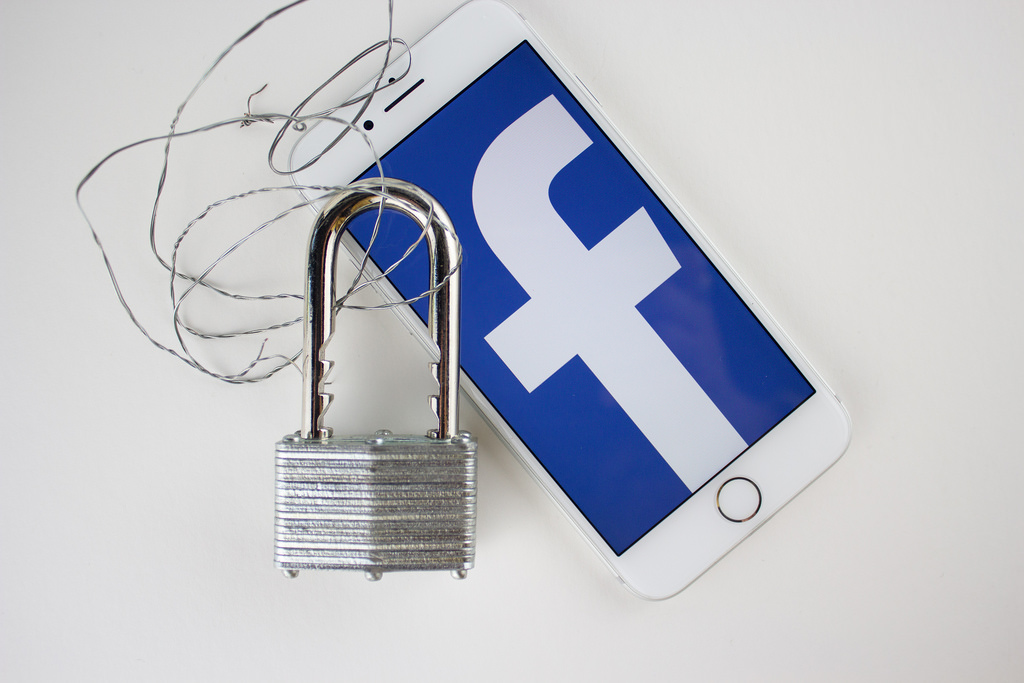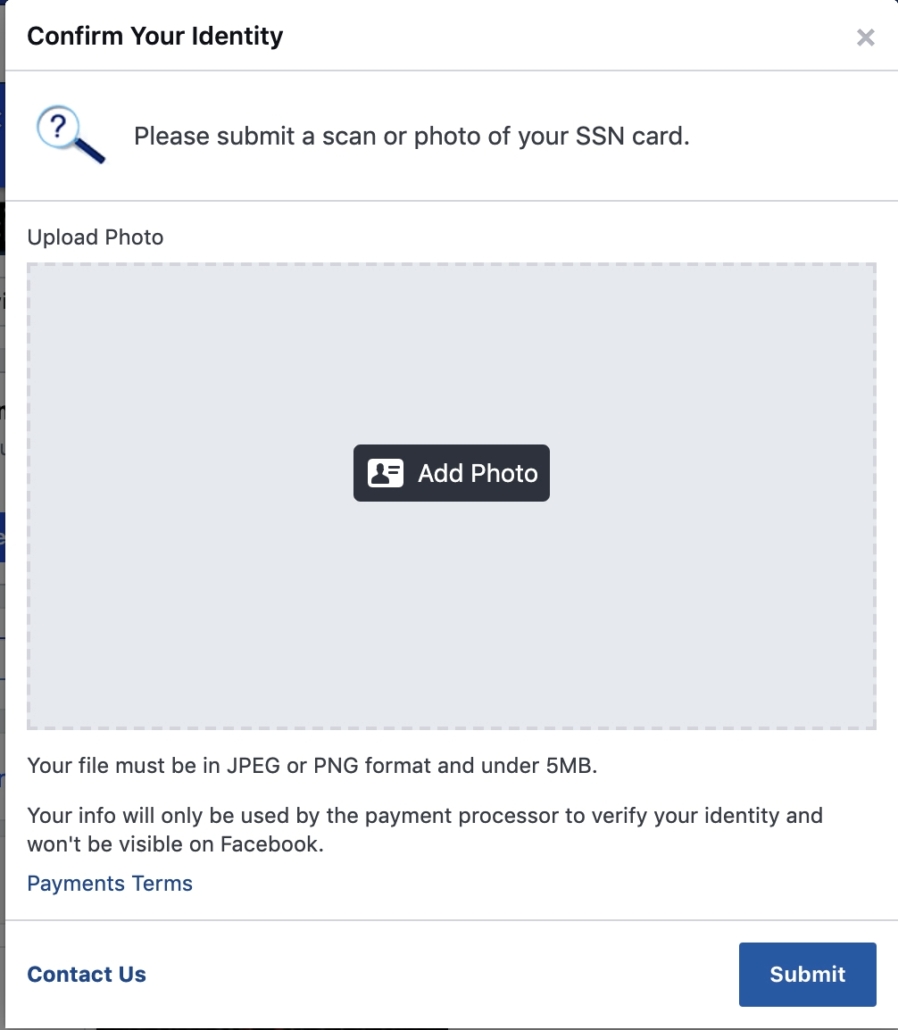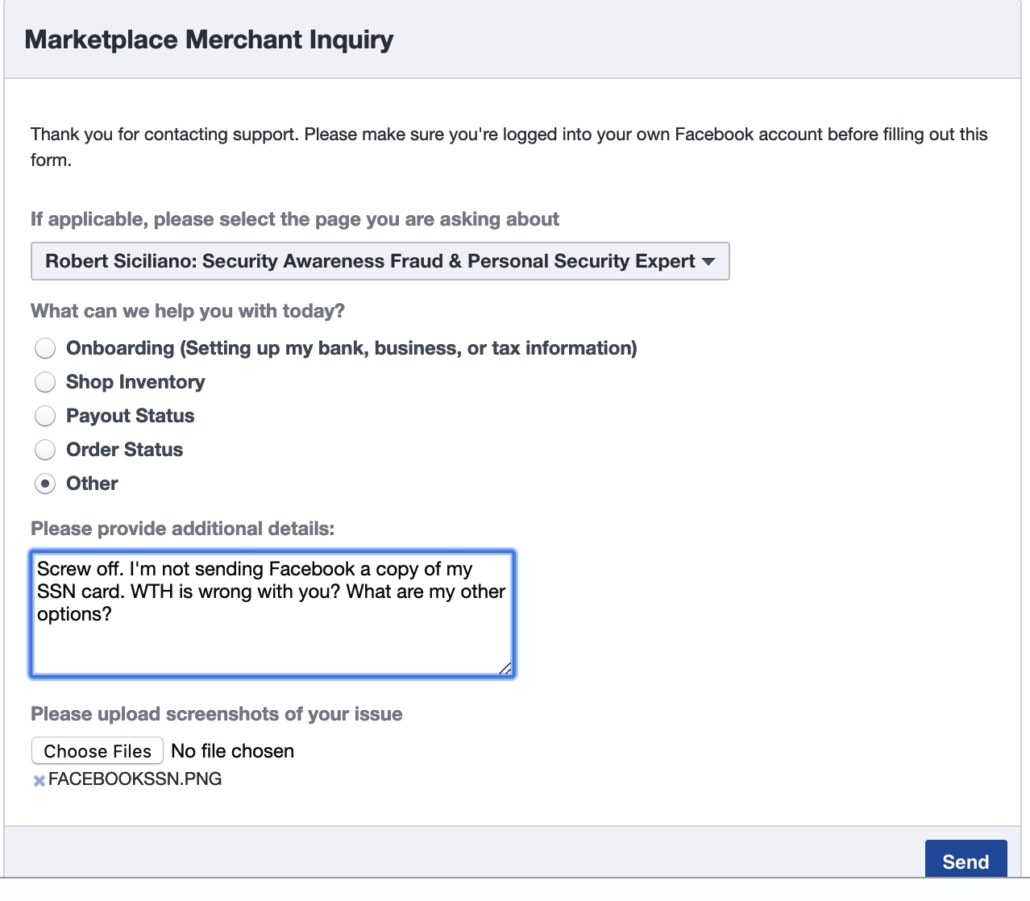Facebook Wants my Social Security Number!
WTH Facebook? Generally, I don’t have a problem giving out my SSN. That might seem contrary to the advice I give, but frankly, our SSNs are everywhere and if my insurance company needs it, I’ll generally just question them on it, maybe resist a bit, and if they insist, and I need that insurance policy, I’ll cough it up.

My identity in regards to “new account fraud” is protected via a credit freeze and I also have identity theft protection in place. So between the two, I’m pretty locked down. This is the advice I give everyone. So I’m generally not alarmed or concerned when asked for my SSN.
BUT, today friggin Facebook asked for it and of all the company’s or government agency’s on the planet to ask for this level of personal identifying sensitive information, Facebook is the world’s single most notorious abuser of privacy in the history of the world.
There have been countless breaches and privacy issues with Facebook and this is so over the top I can’t even believe they have the nuts to ask for a copy of my Social Security card.
Here’s how it played out….An email came in from Facebook subject line “Your sales are on hold” with the message:
Hi Robert Siciliano: Security Awareness Fraud & Personal Security Expert,
When Robert Siciliano: Security Awareness Fraud & Personal Security Expert’s shop was set up, Robert Siciliano’s information was entered. To help keep Facebook secure, we need to confirm the identity of people representing a business on Facebook or Instagram.
Your sales have been temporarily put on hold until we can confirm Robert’s information. This is a standard process and should only take a few minutes to complete.
Once you confirm Robert’s information, you’ll be able to receive payments again.
Thanks,
The Facebook Team
WTH?!! OK, sure. So I sell my books on my Facebook page and e-commerce is involved. There’s a tax thing going on here. But they aren’t asking for my EIN or are engaging me in a formal process to vet my viability as a tax payer. They are asking for a copy of my SSN in the form of a scan to “verify” me!
I clicked a link on Facebook to see where this debacle would take me and see here:

So I clicked “Contact Us” to voice my frustration and my response was:

And I’ll repeat: “Screw off. I’m not sending Facebook a copy of my SSN card. WTH is wrong with you? What are my other options?
Stay tuned for how this BS turns out.
To be continued. Robert.
Robert Siciliano personal security and identity theft expert and speaker is the author of Identity Theft Privacy: Security Protection and Fraud Prevention: Your Guide to Protecting Yourself from Identity Theft and Computer Fraud. See him knock’em dead in this Security Awareness Training video.

 You know the drill. You go to a website and it says “Log In With Facebook.” or Google. Usually, it just takes a couple of clicks and no logging in with other usernames or passwords. However, when you do this, Facebook essentially becomes your online identity. This means that anyone who knows these credentials have access to your preferences, posts, and most importantly, your personal information. What’s more is that you might be unknowingly giving permission to a third party to access your profile, view your online activities, and get information about your friends.
You know the drill. You go to a website and it says “Log In With Facebook.” or Google. Usually, it just takes a couple of clicks and no logging in with other usernames or passwords. However, when you do this, Facebook essentially becomes your online identity. This means that anyone who knows these credentials have access to your preferences, posts, and most importantly, your personal information. What’s more is that you might be unknowingly giving permission to a third party to access your profile, view your online activities, and get information about your friends.



























